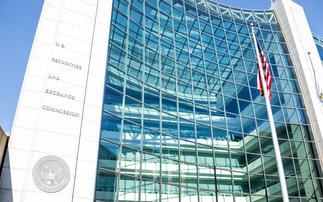Corporate reporting bodies including CDP and Climate Disclosure Standards Board set out plans to improve links between SDGs and company financial performance
A group of the world's leading corporate reporting bodies have resolved to work together to develop better, more cohesive company reporting guidelines to help demonstrate the financial benefits of progress towards the UN's 2030 Sustainable Development Goals (SDGs).
In a position paper published last week, organisations such as CDP and the Climate Disclosure Standards Board set out their joint plan to provide companies with improved frameworks to help measure progress towards all 17 of the SDGs.
By working together through the Corporate Reporting Dialogue, an initiative set up in 2014 by the International Integrated Reporting Council (IIRC), the organisations said they aimed to boost business understanding of the links between the goals, financial performance, and risk management.
The Dialogue, which came in response to market calls for greater consistency between corporate reporting frameworks and standards, includes CDP, Climate Disclosure Standards Board, the Global Reporting Initiative, the International Integrated Reporting Council, the International Organization for Standardization, and the Sustainability Accounting Standards Board.
The new co-authored paper - entitled SDGs and the future of corporate reporting - seeks to identify how corporate reporting can illustrate which specific SDGs are relevant to a company's business model, thereby enabling both businesses and investors to focus on those SDGs most likely to affect financial performance, explained the IIRC.
Adopted in 2015 and running through to 2030, the SDGs set 17 goals and 169 sub-targets covering almost every aspect of sustainable development, including poverty eradication, climate action, gender rights, education, and biodiversity.
They have been praised by experts for highlighting the integrated and global nature of global economic development and the risks the world faces. As such they have been adopted by many businesses as a means of shaping and driving their sustainability efforts. However, the SDGs have also been criticised in some quarters for being too complex and wide-rangin, making it difficult for businesses, governments, and investors to develop effective SDG strategies.
The new paper attempts to highlight how businesses can use the SDGs as a framework for their sustainability programmes and emphasises the importance of companies more closely integrating financial and non-financial information in their disclosures in order to demonstrate how action on the SDGs creates value for stakeholders in both the short and long term.
Finally, the paper outlines the work that corporate reporting bodies, framework providers, and standard-setters must undertake to ensure businesses have guidance on how to assess progress against the 17 SDGs' underlying 169 sub-targets and that they are producing "meaningful" information for investors and stakeholders.
"We will strive with our further co-operation to enable effective and efficient capital allocation for the benefit of companies, investors, and society," the paper states. "This includes providing frameworks that measure progress toward achieving the SDGs, and providing frameworks that enable a better understanding of the link between the SDGs and company financial performance and risk."
The news comes as BMO Global Asset Management today became the latest global investment giant to announce a new fund based on the SDGs.
The BMO SDG Engagement Global Equity Fund has been seeded by UBS Global Wealth Management through its 100 per cent sustainable investing initiative and will take "targeted, impact-focused, active engagement with investee companies" to drive progress on the SDGs.
The fund will hold between 40 to 60 global small- and mid-cap equities that have been selected against strict criteria for quality and value. "Only companies where we see scope for driving improvement towards SDG targets, through a tailored programme of engagement, warrant a place in the portfolio," the company said.
"In our view, responsibly engaging with public companies and changing their behaviour for the better is one of the most exciting new areas of impact investing," said Mark Haefele, chief investment officer at UBS Global Wealth Management. "It also forms a core part of our 100 per cent sustainable cross-asset portfolio for private clients. By improving their social and environmental performance, firms can mitigate risks, support their brands, and take advantage of sustainable business opportunities. For investors, successful engagement should be a win-win result."








